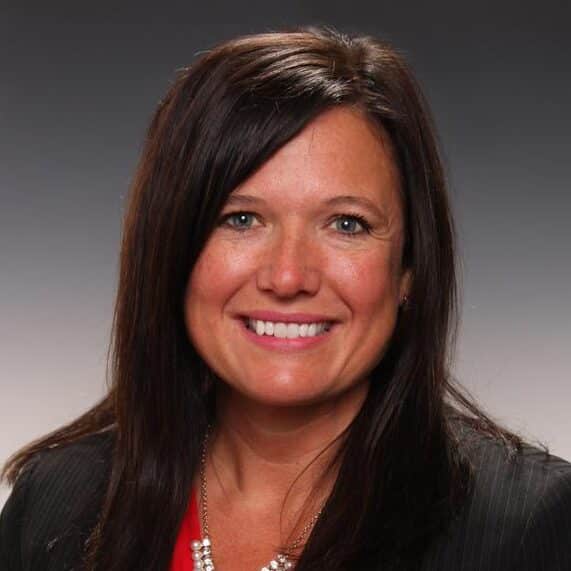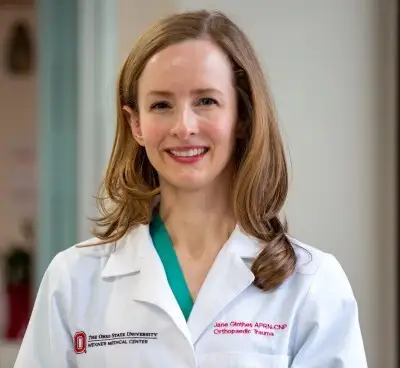School Nurse Professional Pupil Services Licensure Certificate

November 2, 2026
January 11, 2027
Preparing you for the Ohio Department of Education school nurse license
Frequently Asked Questions
These FAQs cover common questions with general answers for prospective students considering the School Nurse Professional Pupil Services Licensure Certificate. If you have specific questions about your particular circumstance please reach out to nursing@osu.edu and we would be happy to assist you.
Admission Requirements: Applicants must have an active and unrestricted RN license, a completed bachelor’s degree, and a cumulative GPA of 2.5 or higher.
Applicants usually need a valid RN license and a bachelor’s degree in nursing or a related field. Some programs may require prior work experience in nursing.
The duration of the program can vary, but it typically takes 1 to 2 years to complete, depending on whether you are studying full-time or part-time.
Related Content
Related Content

Top 4 Things to Ask When Considering an Online Program
Learn the top 4 things to consider when weighing your options for pursuing an online degree from an Ohio State academic advisor.

Are Online Degrees Respected?
Learn how a degree from one of the best colleges online can help you stand out to employers and get a job.

How Much Does Online College Cost?
Calculate the cost of an online degree, and discover the best online degree for you and your budget.
Academic Calendar
The online School Nurse Professional Pupil Services Licensure Certificate program admits students twice per year (spring and summer terms).
Academic Calendar
The online School Nurse Professional Pupil Services Licensure Certificate program admits students twice per year (spring and summer terms).
Admission Criteria
To apply for this online nursing certificate program, you must have the following:
- A cumulative undergraduate GPA of a 2.5 or higher on a 4.0 scale
- Cumulative GPAs include all coursework attempted at the undergraduate level and are calculated by Ohio State’s Graduate and Professional Admissions office.
- Active and unencumbered/unrestricted Ohio RN License
- You must have an active, unencumbered license as a Registered Nurse in the state of Ohio. Students may apply to the certificate before receiving their license, but must have it prior to beginning enrollment in certificate coursework.
- Completion of a bachelor’s degree
- Your degree must be from an accredited bachelor’s program. Students may apply to the certificate before completing their bachelor’s degree, but must complete it prior to beginning enrollment in certificate coursework.
- Reside in an authorized state
- To participate in the School Nurse Professional Pupil Services Licensure certificate, you must reside in an authorized state.
Visit this page to learn more about requirements related to vaccines, licenses and other requirements upon admission.
Applications for certificate programs are not reviewed until after the application deadline.
How to Apply
To apply for the School Nurse Professional Pupil Services Licensure certificate, you must complete the following prior to the application deadline:
You may review the status of your application anytime at appstatus.osu.edu.
You can complete an application online on Ohio State’s Graduate and Professional Admissions website. A non-refundable $60 application fee is required at the time of submission.
Applicants are required to submit the Board Action from the state board of nursing licensure verification website from the state where the student is licensed. The form must indicate whether the license is unencumbered. Submit this summary document as a PDF file at the time of application or after by way of the Admissions Uploader. We will not accept documentation that does not provide the following information:
- Student’s Full Name
- License Number
- Expiration Date
- State of Authorization
- Board Action Status
To complete your application and verify your degree and undergraduate GPA, you must submit transcripts from all educational institutions you have attended.
When applying:
- You may upload scanned copies of official transcripts, diplomas, or degree certificates to the online application system. Note: You do not need to submit transcripts for coursework or degrees earned from The Ohio State University.
- These scans help form a complete application packet, but they do not replace the need for official documents.
What is not accepted:
- Advising reports
- Unofficial transcripts or scans labeled “UNOFFICIAL”
- Documents with a URL across the top
- Transcripts missing the institution’s name, seal, stamp, or GPA
These types of documents will not be used for degree verification or GPA calculation.
Exception: You do not need to submit transcripts for coursework or degrees earned from The Ohio State University.
English proficiency requirement, if you come from a country where the first language is not English, unless you earned a bachelor’s degree or higher in an English-speaking country.
Admission Timeline
You can download an overview of the admissions timeline here. This admissions timeline covers what you can expect throughout the application process, including an anticipated timeline for when admissions decisions will be released and next steps if you are offered admission.

The Ohio State University participates in the State Authorization Reciprocity Agreements (SARA).
SARA is a national initiative that increases student access to distance education courses and programs while maintaining compliance with state regulations. Institutions participating in SARA can offer educational opportunities in all 49 SARA member states, the District of Columbia, the U.S. Virgin Islands and Puerto Rico without seeking individual approval in each state.
California is not a SARA member state, however, OSU may offer online courses and programs to students located in California under the California Private Post-Secondary Act of 2009.
The Application Process
Once you understand your program’s admission criteria, please note the application deadline. You’ll need a quiet space and a variety of materials for your application. To learn more, please see our Admissions page for the full process. Ready to Apply? Find your application here.
Career Outlook
This undergraduate certificate is designed for Ohio Registered Nurses with a bachelor’s degree who are looking to meet the requirements for the School Nurse Professional Pupil Services License through the Ohio Department of Education, as well as expand their knowledge and skills in promoting school health and wellness in grades K-12.
Top Occupations by Median Income
What They Do
Direct nursing staff in the provision of patient care in a clinical practice setting, such as a hospital, hospice, clinic, or home. Ensure adherence to established clinical policies, protocols, regulations, and standards.
Work Activities
Provide specialized direct and indirect care to inpatients and outpatients within a designated specialty, such as obstetrics, neurology, oncology, or neonatal care. Collaborate with other health care professionals and service providers to ensure optimal patient care. Read current literature, talk with colleagues, or participate in professional organizations or conferences to keep abreast of developments in nursing.
Wage Range
- Entry Level: $66,030
- Mid Level: $93,600
- Senior Level: $135,320
Job Outlook
Bright
Related Careers
- Acute Care Nurses
- Advanced Practice Psychiatric Nurses
- Critical Care Nurses
- Nurse Practitioners
- Registered Nurses
Job Sectors
- Medicine and Dentistry
- Education and Training
- English Language
- Psychology
- Biology
What They Do
Care for ill, injured, or convalescing patients or persons with disabilities in hospitals, nursing homes, clinics, private homes, group homes, and similar institutions. May work under the supervision of a registered nurse. Licensing required.
Work Activities
Observe patients, charting and reporting changes in patients' conditions, such as adverse reactions to medication or treatment, and taking any necessary action. Measure and record patients' vital signs, such as height, weight, temperature, blood pressure, pulse, or respiration. Administer prescribed medications or start intravenous fluids, noting times and amounts on patients' charts.
Wage Range
- Entry Level: $47,960
- Mid Level: $62,340
- Senior Level: $80,510
Job Outlook
Average
Related Careers
- Acute Care Nurses
- Critical Care Nurses
- Nurse Practitioners
- Paramedics
- Registered Nurses
Job Sectors
- Customer and Personal Service
- English Language
- Psychology
- Medicine and Dentistry
- Administration and Management
What They Do
Assess patient health problems and needs, develop and implement nursing care plans, and maintain medical records. Administer nursing care to ill, injured, convalescent, or disabled patients. May advise patients on health maintenance and disease prevention or provide case management. Licensing or registration required.
Work Activities
Record patients' medical information and vital signs. Administer medications to patients and monitor patients for reactions or side effects. Maintain accurate, detailed reports and records.
Wage Range
- Entry Level: $66,030
- Mid Level: $93,600
- Senior Level: $135,320
Job Outlook
Bright
Related Careers
- Acute Care Nurses
- Clinical Nurse Specialists
- Critical Care Nurses
- Licensed Practical and Licensed Vocational Nurses
- Nurse Practitioners
Job Sectors
- Psychology
- Customer and Personal Service
- Medicine and Dentistry
- English Language
- Administrative
What They Do
Plan, direct, or coordinate academic or nonacademic activities of preschools or childcare centers and programs, including before- and after-school care.
Work Activities
Confer with parents and staff to discuss educational activities and policies and students' behavioral or learning problems. Monitor students' progress and provide students and teachers with assistance in resolving any problems. Recruit, hire, train, and evaluate primary and supplemental staff and recommend personnel actions for programs and services.
Wage Range
- Entry Level: $37,060
- Mid Level: $56,270
- Senior Level: $96,400
Job Outlook
Below Average
Related Careers
- Education Administrators, Kindergarten through Secondary
- Preschool Teachers, Except Special Education
- Social and Community Service Managers
- Special Education Teachers, Elementary School
- Special Education Teachers, Kindergarten
Job Sectors
- Customer and Personal Service
- Education and Training
- Administration and Management
- English Language
- Psychology
What They Do
Advise and assist students and provide educational and vocational guidance services.
Work Activities
Maintain accurate and complete student records as required by laws, district policies, and administrative regulations. Counsel students regarding educational issues, such as course and program selection, class scheduling and registration, school adjustment, truancy, study habits, and career planning. Provide crisis intervention to students when difficult situations occur at schools.
Wage Range
- Entry Level: $43,580
- Mid Level: $65,140
- Senior Level: $105,870
Job Outlook
Average
Related Careers
- Rehabilitation Counselors
- School Psychologists
- Social and Human Service Assistants
- Special Education Teachers, Elementary School
- Special Education Teachers, Kindergarten
Job Sectors
- Customer and Personal Service
- English Language
- Therapy and Counseling
- Education and Training
- Psychology
What They Do
Provide and manage health education programs that help individuals, families, and their communities maximize and maintain healthy lifestyles. Use data to identify community needs prior to planning, implementing, monitoring, and evaluating programs designed to encourage healthy lifestyles, policies, and environments. May link health systems, health providers, insurers, and patients to address individual and population health needs. May serve as resource to assist individuals, other health professionals, or the community, and may administer fiscal resources for health education programs.
Work Activities
Prepare and distribute health education materials, such as reports, bulletins, and visual aids, to address smoking, vaccines, and other public health concerns. Develop and maintain cooperative working relationships with agencies and organizations interested in public health care. Maintain databases, mailing lists, telephone networks, and other information to facilitate the functioning of health education programs.
Wage Range
- Entry Level: $42,210
- Mid Level: $63,000
- Senior Level: $112,900
Job Outlook
Bright
Related Careers
- Community Health Workers
- Health Informatics Specialists
- Healthcare Social Workers
- Nursing Instructors and Teachers, Postsecondary
- Rehabilitation Counselors
Job Sectors
- Customer and Personal Service
- Education and Training
- English Language
- Administrative
- Psychology
What They Do
Teach courses in health specialties, in fields such as dentistry, laboratory technology, medicine, pharmacy, public health, therapy, and veterinary medicine.
Work Activities
Prepare course materials, such as syllabi, homework assignments, and handouts. Keep abreast of developments in the field by reading current literature, talking with colleagues, and participating in professional conferences. Evaluate and grade students' class work, assignments, and papers.
Wage Range
- Entry Level: $51,760
- Mid Level: $105,620
- Senior Level:
Job Outlook
Bright
Related Careers
- Biological Science Teachers, Postsecondary
- Clinical Nurse Specialists
- Health Education Specialists
- Nursing Instructors and Teachers, Postsecondary
- Recreation and Fitness Studies Teachers, Postsecondary
Job Sectors
- Education and Training
- English Language
- Biology
- Medicine and Dentistry
- Psychology
National occupational information in Ohio State Online’s Career Outlook tool is sourced from O*NET Online and the U.S. Bureau of Labor Statistics (BLS). The median annual wage displayed to the right of each occupational title above is based on the BLS Employment Projections program. Outlook and percent change indicate projected growth or decline over the next 10 years.
Whether you’re looking to grow in your current career or make a career change altogether, Ohio State’s online programs can help you achieve your goals. Learn what the outlook is for your current or next career move using O*Net’s My Next Move tool.
Curriculum
This 100% online School Nurse Professional Pupil Services Licensure Certificate program includes four courses. The culminating course, a practicum, will allow you to apply what you’ve learned in an Ohio school. All required courses are asynchronous, meaning you can attend classes on your own time.
Introduction to the scope of roles and responsibilities involved in providing school health services locally and globally within school and community settings. Consideration of regulatory directives, health goals and resources. Analysis of skills and factors used to promote healthy school environments.
Overview of the strategies for promoting school health on a daily, weekly and annual basis focusing on health promotion and disease prevention.
School health services for children with special needs based on best evidence. Interdisciplinary, legislative and professional aspects considered.
Supervised school nurse field experience in an Ohio school setting applying the roles and responsibilities of a school nurse according to state and national standards. This course must be taken in the final semester of the certificate.
Understanding Online Course Types
As you research the right online program for you, you likely will come across the terms “asynchronous” and “synchronous.” Learn what these terms mean and how they’re important to consider when understanding how a program will fit into your life.
Learn More

Program Faculty
The College of Nursing faculty who teach within the School Nurse Professional Pupil Services Licensure Certificate are experts in the field and are here to help you succeed and reach your goal of receiving your School Nurse Professional Pupil Services License through the Ohio Department of Education.

Jeanie Bochenek DNP, RN, NCSN | Evidence-based Practice (CH)
Clinical Assistant Professor of Practice
Jeanie Bochenek, DNP, RN, NCSN | Evidence-based Practice (CH) is a Clinical Assistant Professor of Practice within our College of Nursing that teaches online courses for the School Nurse Professional Pupil Services Licensure Certificate and the Undergraduate Certificate of Nursing in School Health Services.
Susan Praeger, EdD, APRN-CNP, FNASN
Associate Professor of Practice
Tuition Fee Overview
Investing in your future with a higher education degree is one of the best investments you can make for your future success. At Ohio State, we know understanding your program’s cost is an important part of your decision-making process. Below are the tuition fees you can expect with your program. Actual costs may vary. Estimates are based on the expenses typical of an Ohio State Online student, who would take 6 credit hours each semester as a part-time undergraduate student (or 8 credit hours for graduate programs), or 12 credit hours (for undergraduate programs) each semester as a full-time student. Please note that the summer semester instructional and general fees are 75% of the cost of autumn and spring fees, and this will decrease your total cost for the program.
Tuition fees are subject to change. The table above serves as a guide and not an official bursar’s bill.
Financial Aid Resource
Financial Aid Resource
Related Articles
Related Articles

How to ask your employer for tuition reimbursement
How to Pay for Your Online Program

Tips for Online Learning from Ohio State Students and Faculty
Get Started
Connect with a knowledgeable Enrollment Advisor who can help answer your questions and explain different aspects of the more than 80 online degrees and certificates offered at Ohio State. They are here to help you on your education journey.



